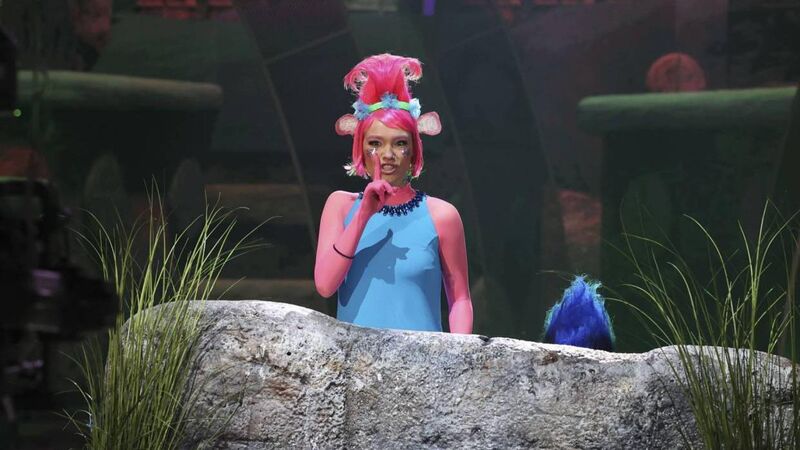I was happy to renew my €160 TV licence and fund RTÉ, here's why...

On the surface, the cultural phenomenon of watching other people dance as a form of mass entertainment, as opposed to actually dancing ourselves, is a bit weird, and there are lots of people who turn their noses up at RTÉ’s Dancing With The Stars, dismissing it as a celebration of fake tan and missteps.
However, when you see nervous and novice competitors transform from a two-left-feet-ramrod-straight clodhopper to a light-on-their-toes gliding dancer, and the joy and satisfaction it brings them, it is hard to be cynical.
I was a sceptic, but opportunities for family viewing are limited and my kids’ enthusiasm for the show nudged me to watch. So, over the last three years, I have pivoted into a dedicated Dancing With The Stars fan. The show is slick and polished with high production values and fantastic staging.
For the rest of the week, my kids can be found leaping about the kitchen, trying to execute moves the professional dancers do effortlessly. These improvised performances are then critiqued, and their impressions of the judges are hilarious.
My appreciation for it came to mind when I renewed my TV licence and handed over €160 to RTÉ for the next 12 months.
There are not many things that have remained the same price for 15 years, but surprisingly the TV licence has been fixed since 2008.
In the next few weeks, we will tune into the Six Nation rugby matches, catch-up with Tommy Tiernan on the RTÉ Player, and my kids will watch RTÉ Jnr on the Player at the weekends (which comes with the under-heralded feature of being ad-free).
Every morning we’ll switch the dial between Morning Ireland on RTÉ Radio 1 and the more kid- friendly Breakfast Show on 2FM and at night I’ll do the rounds through the RTÉ News app, catching up on what has happened throughout the day.
If you are snorting in derision at my stance and obvious conflict of interest, I get it. As a freelance TV producer, I have been making programming in the independent production sector for two decades and I rely on RTÉ to keep funding programmes that I can produce.
But you don’t need to work on the telly to agree that public service broadcasting and a thriving Irish media sector are crucial for a functioning society.
I, like so many, was disappointed and annoyed by the revelations of poor governance at RTÉ, and I can understand why people would choose to keep their €160 safe in their pocket rather than see it blown on inflated presenter fees and unnecessary flip-flops.
But before the trouble with Ryan Tubridy started last summer, RTÉ was already i dtrioblóid. A report by the Future of Media Commission published in 2021 found just 29% of people agreed that €160 a year on the TV licence represented good value, whereas 52% disagreed and 19% were unsure.
Paradoxically, that report also found that RTÉ 1 and RTÉ 2 were the most valued media services. Some of the top reasons given for this appreciation included “Reliable/trustworthy” “Best quality content” and “It is Irish”.
It would be interesting to run those surveys again after all that has emerged, but a very blunt reading suggests people want to keep RTÉ - but don’t want to pay for it.
A quick look at the various subscription services available in Ireland shows NOW TV, Disney+, Netflix or Amazon Prime will cost roughly €110 a year each. Or fork out a whopping €600 and get a Sky Sports, Netflix and Sky Entertainment bundle, and risk never leaving your couch again.
Sky Ireland has approximately 700,000 subscribers here. In 2019, subscriptions to Pay-TV and Subscription Video-on-Demand services totalled over €500 million.
It shows that people are willing to spend big money (to U.S and UK media providers) for TV, but perhaps only for programming they choose themselves.
Add on the fact that Big Tech has hoovered up digital advertising revenues, resulting in a serious fall in income across the board for TV, radio and print media, and the economic sustainability of many parts of Ireland’s media sector looks dicey.
The Future of Media Commission recommended scrapping the TV licence and introducing a new public funding system based entirely on Exchequer funding.
But three years later, with RTÉ revelations still emerging, it seems unlikely any politician will grasp the nettle of how to solve the problem of funding RTÉ.
‘It’s in the can’ is an anachronous expression left over from the film industry to say footage has already been shot and the film is in the can.
Unfortunately, when it comes to dealing with the existential challenge facing Irish media, we just continue to kick the can down the road.
We need to deal with the issue before Irish public service media kicks the bucket.







 App?
App?




